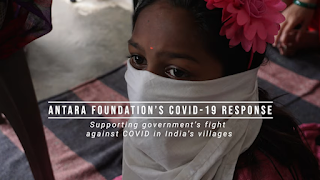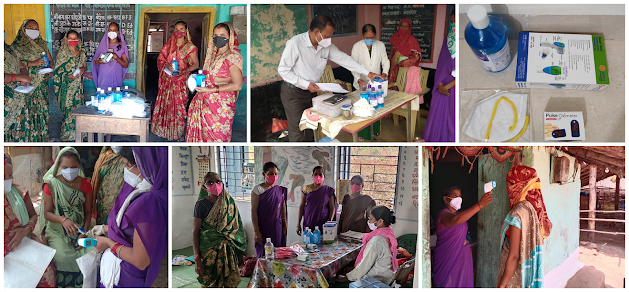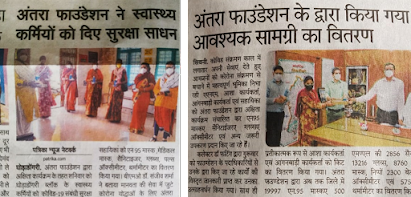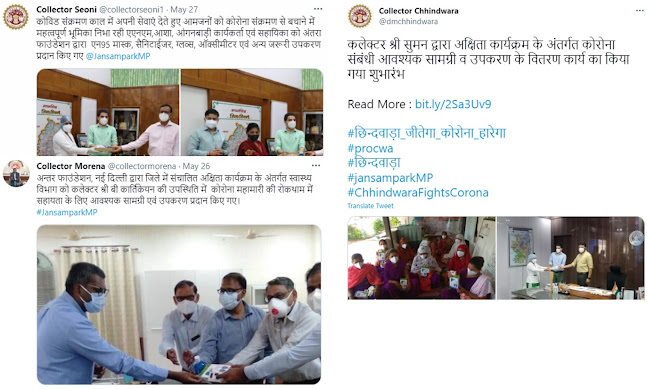



India’s second COVID wave created a devastating impact on the nation. The unprecedented surge in cases stretched the healthcare system beyond its limits and amounted to huge suffering and loss. Many of us were personally affected. Our prayers and thoughts are with everyone.
There has been an outpour of support by organizations to help the country deal with the crisis. Several relief efforts addressed the sudden and steep shortages in oxygen, medicines, and access to treatment. This was no doubt the need of the hour as many Indian cities reeled under the steep demand for COVID treatment. However, the virus began spreading rapidly from urban to rural India. Almost two-thirds of India’s population lives in more than 600,000 villages across the country, and these villages pose a unique challenge.
Most Indian villages are small and dispersed, with poor access to health facilities. Rural health facilities are often ill-equipped, with insufficient staff, supplies and infrastructure. Village frontline health workers are the crucial link between the health system and communities; but the novelty of the virus, and its sheer surge has left them unprepared. Stigma around the virus, including distrust towards treatment and vaccination adds to the complexity. Ignoring rural India can build up a frightening invisible surge.
Antara Foundation jumped into an emergency response to help the government and communities we work with in rural Madhya Pradesh. Our tenet was to focus on ‘prevention at the village level’. Our strong belief is that timely prevention, testing and triaging in villages will not only control the virus’ spread, but also reduce the burden on ‘treatment’ at already stretched facilities. We leveraged our grassroots knowledge of the health system and put together a three-pronged COVID-response plan for the next few months –
Bridge essential supply gaps: Provide safety kits (masks, gloves, sanitizers) and screening equipment (infrared thermometers and oximeters) to frontline health workers and at facilities.
Build capacity: Equip frontline workers and health staff with COVID knowledge and skills (COVID-response protocols, safety practices, use of screening equipment, effective counseling).
Mobilize communities for vaccination: Generate awareness and demand among rural communities through informational material and counseling.

Watch a short 2-min video on our COVID-response efforts
Our COVID-response efforts are in full swing, starting with the first objective to provide crucial supplies to health staff. We created a meticulous procurement and distribution plan, that also involves government officials across levels, to ensure direct and timely delivery of all supplies till last-mile villages. At the time of writing this article, we have already delivered more than 100,000 units of supplies to 16,000 health staff (40% of our target) across 3,800 villages.
In photos: Our COVID-supply efforts

Glimpses from TAF’s COVID-relief efforts to provide much-needed safety and screening equipment to our frontline health warriors. We are getting heart-warming messages of gratitude from health staff, and hope our supplies will equip them to carry out essential COVID duties, more safely and effectively.


Coverage in newspapers in Betul and Seoni districts; Titles: Left – Antara Foundation provides essential safety equipment to health workers; Right: Distribution of essential supplies carried out by Antara Foundation
Over the coming months, we will continue to augment supplies to achieve our complete target of 40,000 health staff across the five districts. We will also ramp up our training efforts, and support district administration in their vaccination efforts.
While we carry out our emergency response, we are careful to not detract from our core mission of maternal, child health and nutrition (MCHN). We will actively work to restore and bring MCHN services back on track, and ensure frontline workers are trained to carry out critical services such as immunization and ante-natal check-ups, while following due safety protocols.
We hope our efforts strengthen the hands of our government and communities and contribute towards a meaningful and lasting impact on health systems strengthening.


Social media press releases by Districts Collectors of Chhindwara, Morena and Seoni districts announcing the kick-off of our COVID supply distribution in the respective districts